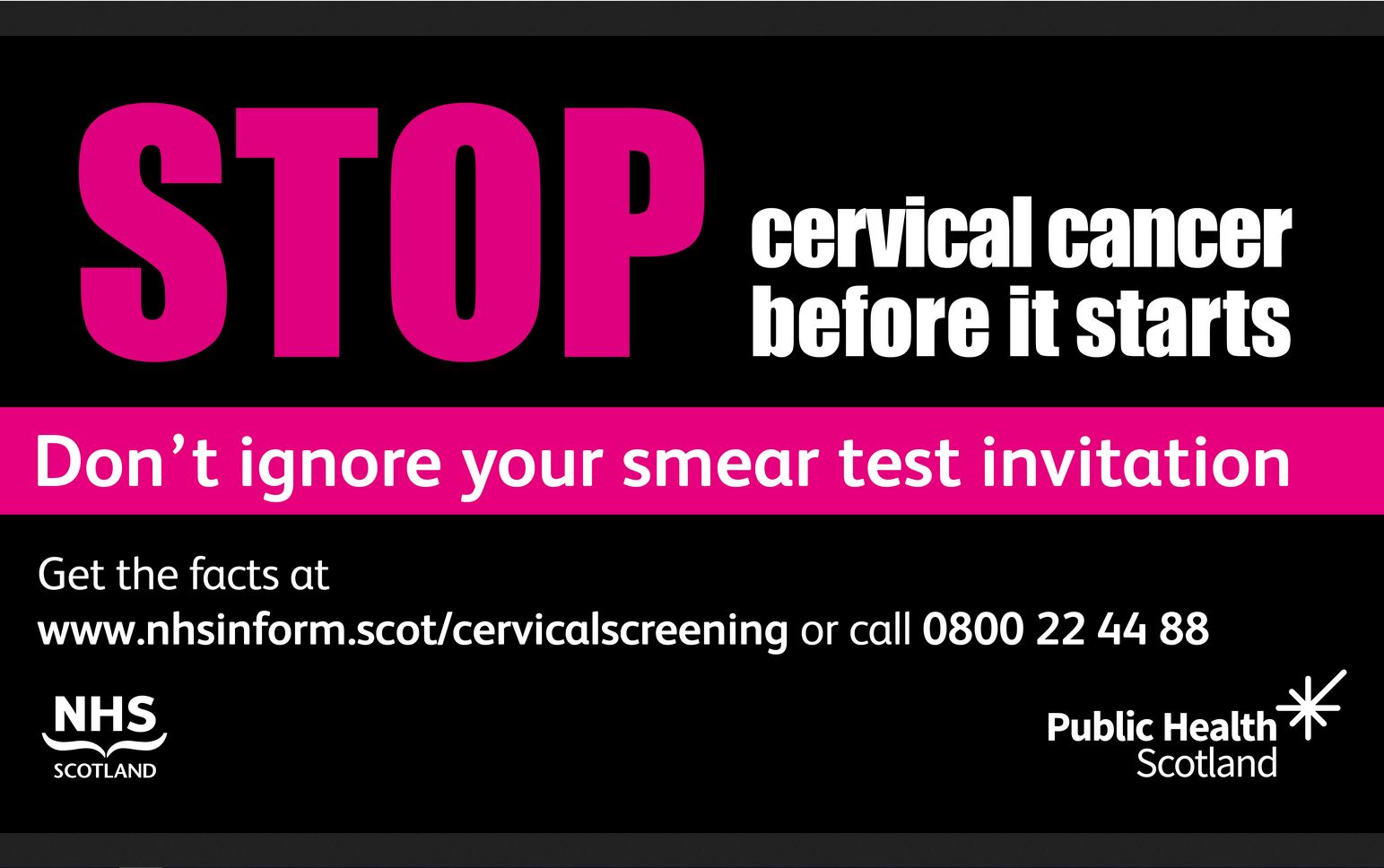Cervical screening tests, also known as smear tests, will now screen for the human papillomavirus (HPV) – the main cause of cervical cancer.
From Monday 16 March 2020, those going for cervical screening in Lanarkshire will receive a more sensitive test which will screen for HPV and help ensure cell changes are identified and treated earlier.
The new test is more effective at identifying those at risk of developing cervical cancer. This means women who don’t have HPV will be invited for a cervical screening test every five years, regardless of their age.
Chief Medical Officer Catherine Calderwood said:
“Introducing HPV testing as part of the main smear test will improve health outcomes for women and ultimately save more lives.
“The way the test is carried out will not change – so it’s important women still attend their cervical screening appointment when invited. It’s normal to feel anxious, but going for your test is the best way of preventing cervical cancer.
“It’s important that those who have been vaccinated for HPV still go for screening. This is because the vaccine does not protect against all types of HPV that can cause cancer. It’s the combination of the HPV vaccination and cervical screening that should eventually wipe out cervical cancer in Scotland.
“Women who are found to have HPV will be closely monitored and treated if required, meaning HPV is extremely unlikely to develop into cervical cancer.”
Chief Executive of Jo’s Cervical Cancer Trust, Robert Music said:
“We are fortunate to have cervical screening as it can stop cervical cancer before it starts and testing for HPV means we can identify those at risk much faster.
“This will help to prevent even more diagnoses. It’s important that women understand the changes to the programme, such as moving to testing every five years, and that they feel comfortable with their results.
“Many more women will now be told they have HPV and we must tackle the fear and confusion that exists around this really common virus.”
Celia Briffa-Watt, NHS Lanarkshire consultant in public health, said:
“Although it’s the best way of preventing cervical cancer, one in four women in Lanarkshire (25.1%) don’t attend their cervical screening test when invited.
“There are many reasons for this, and our staff are trained to help support those who feel worried or anxious.
“We urge all those eligible for cervical screening in Lanarkshire to not ignore your invite when it arrives by post. And if you missed your last appointment, contact your GP practice to find a time that suits.”
For more information visit www.nhsinform.scot/stopcervicalcancer
Ends
Background
• Having HPV is very common. Four out of five people in Scotland will have it at some point in their lives.
• It takes a long time for HPV to develop into cervical cancer, so it’s very rare for a woman who doesn’t have HPV to develop cervical cancer within five years.
• HPV is spread through sexual contact. This includes penetrative sex as well as other types of sexual activity, such as skin-to-skin genital contact or using sex toys.
• HPV can lie dormant for a long period of time. Therefore it’s possible for someone to contract HPV from a previous partner and transmit it to their current partner.
• Lesbian women, women who have only ever had one partner, and those who are no longer sexually active can develop HPV at any point in their lives. Practising safe sex cannot prevent HPV.

